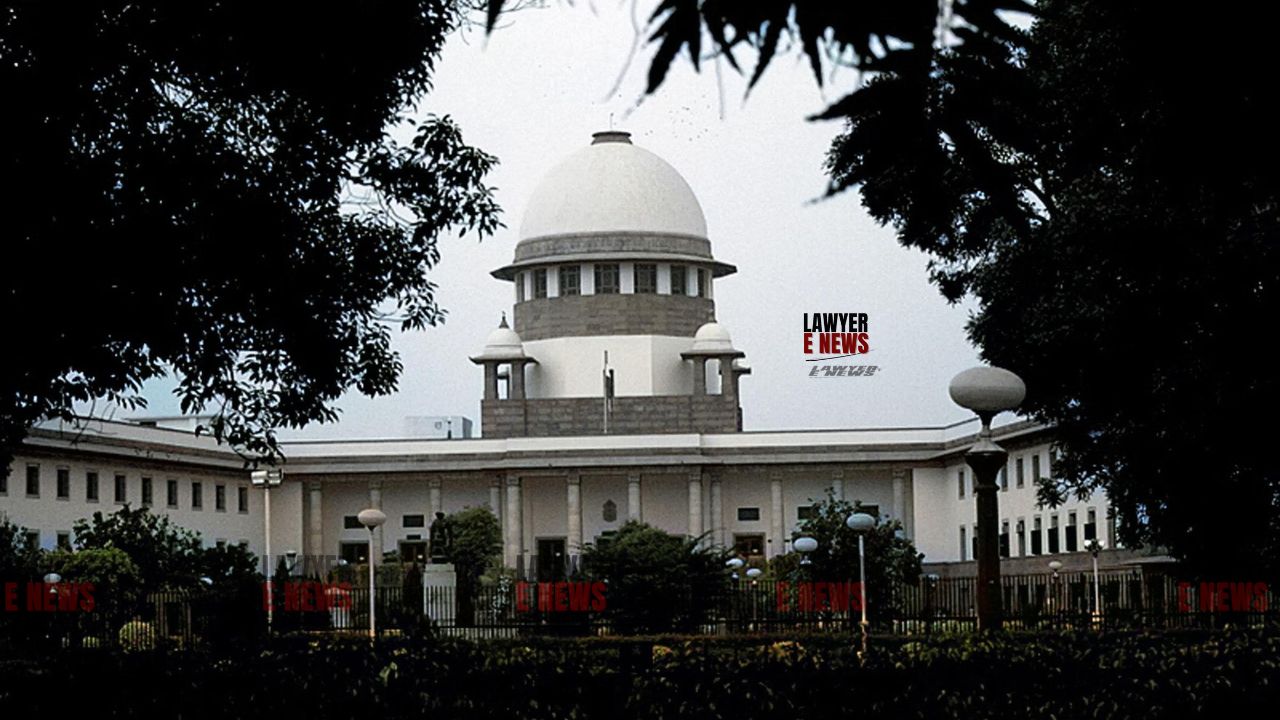-
by Admin
15 February 2026 5:35 AM



Section 18 of the MSMED Act Enables ‘Any Party to a Dispute’ to Seek Redressal, Irrespective of Registration Under Section 8 - Supreme Court of India addressing the contentious issue of whether registration under Section 8 of the Micro, Small, and Medium Enterprises Development (MSMED) Act, 2006, is mandatory for invoking the dispute resolution mechanism under Section 18 of the Act. The Court ruled that registration under Section 8 is not a prerequisite to invoking remedies under Section 18, thereby setting an important precedent for micro and small enterprises.
The Court further clarified that the issue of mandatory registration under Section 8, discussed in previous cases such as Silpi Industries v. Kerala State Road Transport Corporation and Mahakali Foods Pvt. Ltd. v. Gujarat State Civil Supplies Corporation Ltd., did not represent binding precedent on this question. A reference to a larger three-judge bench was ordered to ensure clarity and consistency on the matter.
The case arose from disputes between the appellant, NBCC (India) Ltd., and M/s Saket Infra Developers Pvt. Ltd., a small enterprise that executed multiple construction contracts with NBCC between 2015 and 2017. The enterprise filed a memorandum under Section 8 of the MSMED Act in November 2016, after the execution of four of the five contracts in question. Disputes regarding payments prompted the enterprise to approach the West Bengal State Micro and Small Enterprises Facilitation Council under Section 18 for conciliation and arbitration.
NBCC challenged the jurisdiction of the Facilitation Council on two grounds:
The enterprise was not registered under Section 8 at the time of the contract’s execution.
The contracts involved were "works contracts" and allegedly fell outside the scope of the MSMED Act.
The Calcutta High Court dismissed NBCC’s writ petition, allowing the Facilitation Council to adjudicate the disputes. NBCC appealed to the Supreme Court.
The Court held that Section 18(1) of the MSMED Act uses the phrase "any party to a dispute," which is deliberately broad and inclusive. This contrasts with the term “supplier” as defined under Section 2(n), which refers to micro or small enterprises that have filed a memorandum under Section 8. The Court stated:
“The text, ‘any party to a dispute,’ cannot be read as a ‘supplier’ by adopting a convoluted process of interpretation... The legislative device of employing different expressions in successive provisions is well-known and intended to effectuate the desired purpose of the Act.” (Para 14.1)
The Court emphasized that the language of Section 18 is "open-ended" to facilitate access to remedies for resolving disputes, aligning with the MSMED Act's purpose of promoting and protecting micro and small enterprises.
Analyzing Section 8, the Court noted that registration under this provision is not mandatory. Section 8(1)(a) states that a micro or small enterprise “may, at its discretion,” file a memorandum with the designated authority. The Court also relied on reports from expert committees, which highlighted that formal registration was not mandatory but aimed at aiding policymaking and
providing tangible benefits to registered entities.
“The discretion to file a memorandum recognizes the informal nature of many MSMEs... Filing of a memorandum cannot be treated as a condition precedent to accessing remedies under Section 18.” (Para 14.9)
The Court stressed the overarching objective of the MSMED Act—ensuring timely payments and facilitating dispute resolution for micro and small enterprises. Limiting access to Section 18 remedies by imposing a registration requirement would undermine the Act’s intent.
“Statutory remedies for resolving disputes must be interpreted expansively to uphold the legislative purpose of promoting economic justice for MSMEs.” (Para 14.7)
The Court clarified that neither Silpi Industries nor Mahakali Foods addressed the issue of whether Section 8 registration is mandatory for invoking Section 18 remedies. The observations in these cases were made in the context of their specific facts and cannot be treated as binding precedents. The Court observed:
“A decision not expressed, not accompanied by reasons, and not proceeding on conscious consideration of an issue cannot be deemed to be law declared under Article 141 of the Constitution.” (Para 27)
Given the conflicting interpretations and the lack of clarity in previous judgments, the Court referred the matter to a three-judge bench for an authoritative pronouncement on the mandatory nature of Section 8 registration for invoking Section 18 remedies.
The Supreme Court’s judgment in this case provides much-needed relief to micro and small enterprises, affirming their right to access statutory remedies under Section 18 of the MSMED Act without being restricted by procedural technicalities like pre-registration under Section 8. By emphasizing the legislative intent and adopting a purposive interpretation, the Court reinforced the Act's objective of promoting economic justice for MSMEs.
Date of Decision: January 10, 2025
